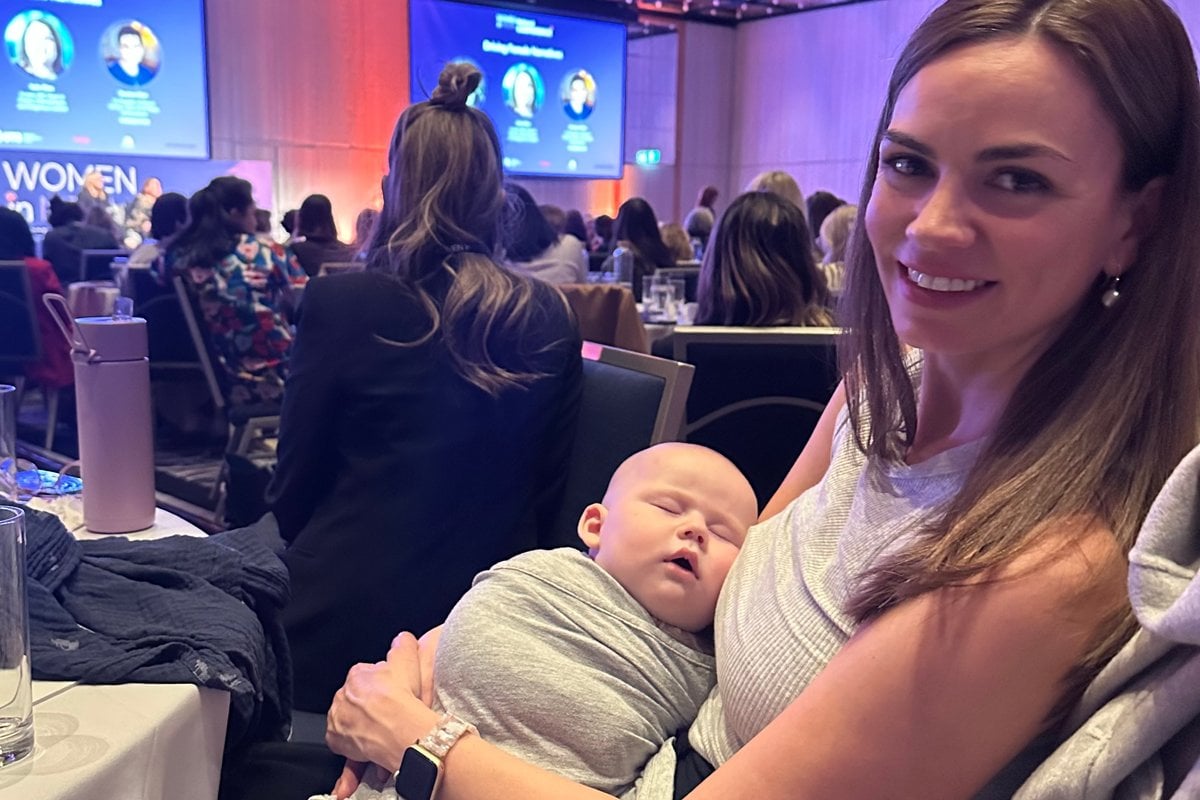
Triggered is the best word to describe the sentiments echoing through many mothers across Australia this week. Especially, mothers who entrust their children to daycare. It was hard not to get fired up upon reading Virginia Tapscott's piece in The Australian which she wrote that leaving your toddler with qualified and caring educators would leave them 'grieving the absence of their primary caregiver'.
To be fair to Virginia, her piece cited children screaming for their parents, and yet it was the mama bears who came out in droves to passionately defend their parenting choices. And the reaction from fathers? Crickets.
Watch: A spoken word video staring Laura Bryne articulating the contradiction of pressures that mothers face in their daily lives. Post continues after video.
I think it's safe to assume very few fathers went to bed last night worrying about their child's emotional development at daycare yesterday. My partner starts snoring before his head has even hit the pillow. I'm still lying there awake an hour later, on my fourth play-by-play of a tantrum that turned into me yelling then apologising "Mummy's sorry for shouting at you to put your shoes on," and making a mental note of how I can do things better the next day, for fear of screwing up my children. I'm not alone in this. Every friend I know is in their worried-Mum era, stressing about how each and every choice we make is affecting our children.


Top Comments